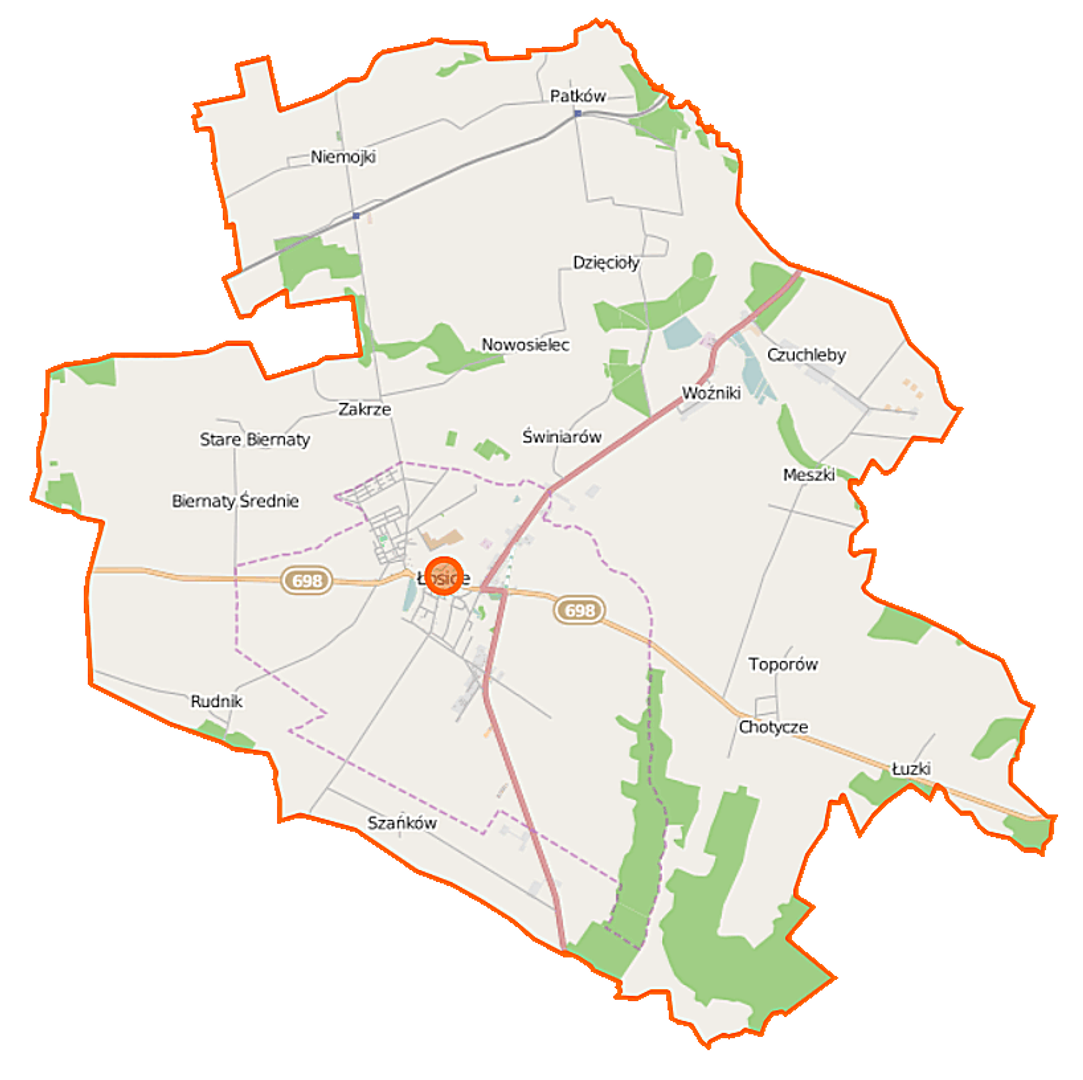Łosice
6.4

Overview
Łosice is an urban-rural municipality located in the Masovian Voivodeship, within the Łosice County, with its seat in the town of Łosice. The municipality was formed by merging the former town of Łosice with the rural communes of Czuchleby and Świniarów. Between 1975 and 1998, the municipality was part of the Biała Podlaska Voivodeship. According to data from June 30, 2004, the population of the municipality was 11,263, while figures from 2002 indicate its area is 121.22 km², of which 82% is agricultural land and 10% is forested. The municipality covers 15.71% of the area of Łosice County, highlighting its regional significance.
Łosice has a rich historical context, with its origins dating back to the Middle Ages. The town features various architectural monuments, including churches and other structures that bear witness to local culture and traditions. The town and municipality are also known for diverse cultural events held throughout the region. Residents participate in numerous festivals, celebrations of local traditions, and are active in cultural organizations, which helps to invigorate the local community. The municipality is divided into several village districts, such as Biernaty Średnie, Chotycze, Czuchleby, and Świniarów, reflecting its diverse administrative and social structure.
An interesting fact is that Łosice is a place where agricultural traditions blend with a growing service sector, contributing to the balanced development of the local economy. The municipality is situated in an area rich in natural resources and recreational spaces, attracting tourists and residents who value proximity to nature. It is also worth mentioning the municipality’s proximity to neighboring towns such as Huszlew, Mordy, and Platerów, which fosters opportunities for cooperation and cultural exchange among nearby communities.
In summary, the Łosice municipality is a place with a rich history, traditional culture, and a dynamically evolving social and economic structure, contributing to the harmonious life of its residents and the preservation of local traditions.
Location
You can also find here:
2026 Wizytor | All Rights Reserved

